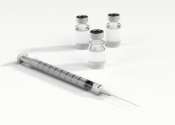Benign nail condition linked to rare syndrome that greatly increases cancer risk
Scientists at the National Institutes of Health (NIH) have discovered that the presence of a benign nail abnormality may lead to the diagnosis of a rare inherited disorder that increases the risk of developing cancerous tumors ...
May 20, 2024
0
66









